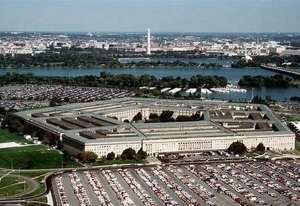It may seem disrespectful, or just an attempt to sound catchy, intended to draw the readers' attention. But none of those would be true. According to the most valid analyses of the experts, these presidential elections are the most inconsequential for the destiny of the big political continent of the USA. It's true, there is a stake and it is definitely not minor, if we put ourselves in the shoes of the two candidates and of the teams which supported them throughout the entire presidential campaign. The competition is important for those who have invested in the potential mandate of the two, Obama and Mitt Romney, from the hard factions of the major American parties, (Democrats and Republicans), to the economic sponsors whose millions were used to fund the huge wasteful spending of the campaign and whose interests "the man in the White House" always represents! In spite of all this, never before has the American president had less room to maneuver, at least since the mid-20th century. The time for great vision seems to be past. The attempt to put on America's agenda the old topics of "The Imperial Power", in a post-Cold-War world where it seemed that its role of "Sole Super Power" could not be contested, has led to its worst domestic crisis and to the most counterproductive track record when it comes to international relations, in the last 50 years. In fact, Obama's first term barely had the time to pick up the pieces of the three Republican "Bush-styled" terms, strewn not just all over the United States, but across the entire globe as well.
It is one of the important reasons why the presidential term which is ending now, is and seems so dull, lacking in horizon and scale. It is the reason why the Republican candidate, Mitt Romney, did not have the means to build a credible electoral system, beyond the simple line: "If there is anything to do in America, I can do it better than Obama!" This is basically everything that flood of speeches and public interventions of the last year boils down to. This is what the famous, but the increasingly less relevant televised debates of the candidates have boiled down to. This is the reason why the two of them, in spite of important differences of political stature and style, are so close in the electoral polls.
Anyone can convince themselves of this, by looking at the topics and the controversies of the campaign, depicted in a concise manner. When it comes to economic policies, Obama presents the results of the set of measures approved by the White House, by which the Administration pumped 768 billion dollars into the economy, through tax cuts, infrastructure and education investments, research programs. The good results of the support program for the automotive industry have now become heavy arguments in favor of the Obama side. The old machine of America's economic growth is doing its job again!
On the other hand, Romney disputes the healthcare reform, claiming it will increase the expenses of the federal budget, and as for the rest, he is chanting the republican mantra of deregulation, as a panacea for "releasing the good forces" of the American economy. When it comes to taxes, for his second term, Obama proposes the continuation of the policies in the first term, intended to reduce taxation for low and medium incomes, and to increase it for high and very high incomes; a model inspired from the proposal of multi-billionaire Warren Buffet. On the other hand, Romney remains faithful to the Republicans' approach: "Let the earners keep their money; they know better than the Government what to do with it, and the positive consequences won't take long to appear, for everyone!" When it comes to energy, the stances of the two candidates reflect the competition between the two major interest groups: alternative energy sources on one hand, oil and gas on the other! There are major interests at stake, the investments and the earnings are expressed in billions, that is why the competition is hard. Obama supports the former faction, Romney is betting on "oilmen". Even though there have been some other domestic debate issues, such as illegal immigration, the much delayed healthcare reform or the issue of the legal stance on abortion, in actuality, their weight in shaping up the political profile of the candidates was insignificant. When it comes to internal security and defense, Obama's program is hard to dispute, especially since the budget cuts of approximately 487 billion dollars in the defense sector, scheduled to take place over the next decade, were agreed upon together with the Republicans. The retreat from Afghanistan is already decided and neither of the two candidates can change anything of what was already agreed at the level of the NATO alliance.
The differences of agenda and solutions between the two presidential candidates exist, and some of them are significant. However, no matter who gets to sit in the White House, starting in February next year, won't be constrained in his actions by the internal political agenda and even less so by the electoral agenda of a campaign that by then everyone will have forgotten! The future president of the USA will have on his agenda the difficult issues of the financial crisis, against which there isn't much he can do, in reality. The experience of the Paulson Plan by which the federal government intervened with major decisions in the process of the events of the financial system show that the subsequent events were very little influenced by it. The system has its logic, the crisis has its own path! No matter how you look at it, the Federal Reserve is, from that point of view, a more important institution than the Federal Government; the bad news is that the FED has already officially declared its inability to further affect the course of events. Aside from printing money, there is no other solution! Everyone is praying, in their own style, for it to eventually start working! Anything that goes against that solution is considered, in Washington as well as on Wall Street, as being detrimental to the American interests, which makes an increasing part of the world, from Europe to mid-Asia, to be perceived by the American politicians as a non-friendly zone, if not outright inimical!
America has already chosen! And the course of history will remain extremely difficult for it. Who will be in charge for it over the next four years? Most likely Obama! Or who knows, maybe it will be Romney! America votes!


















































